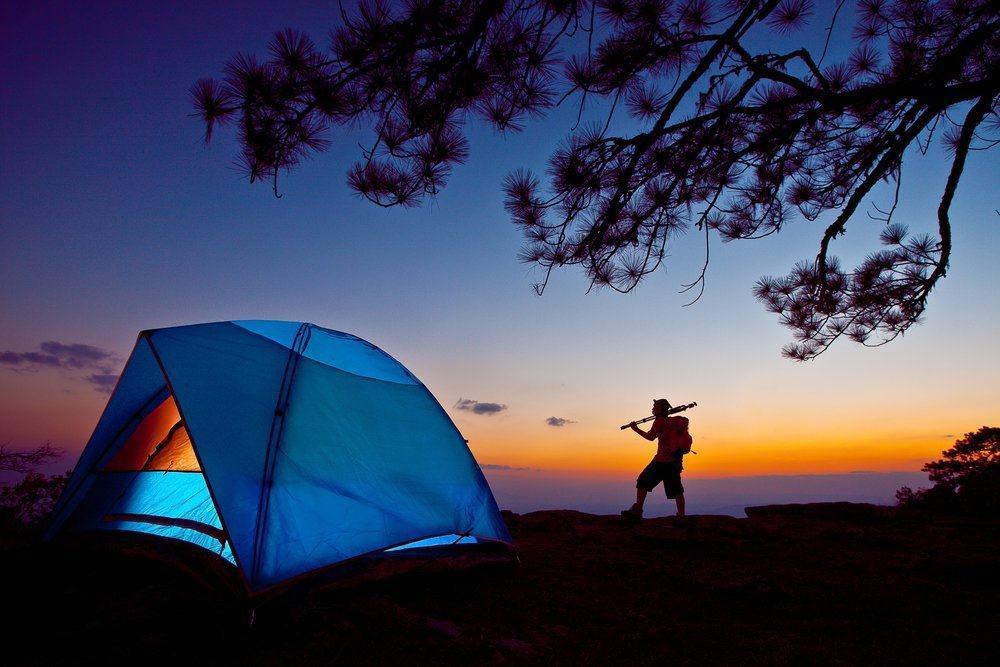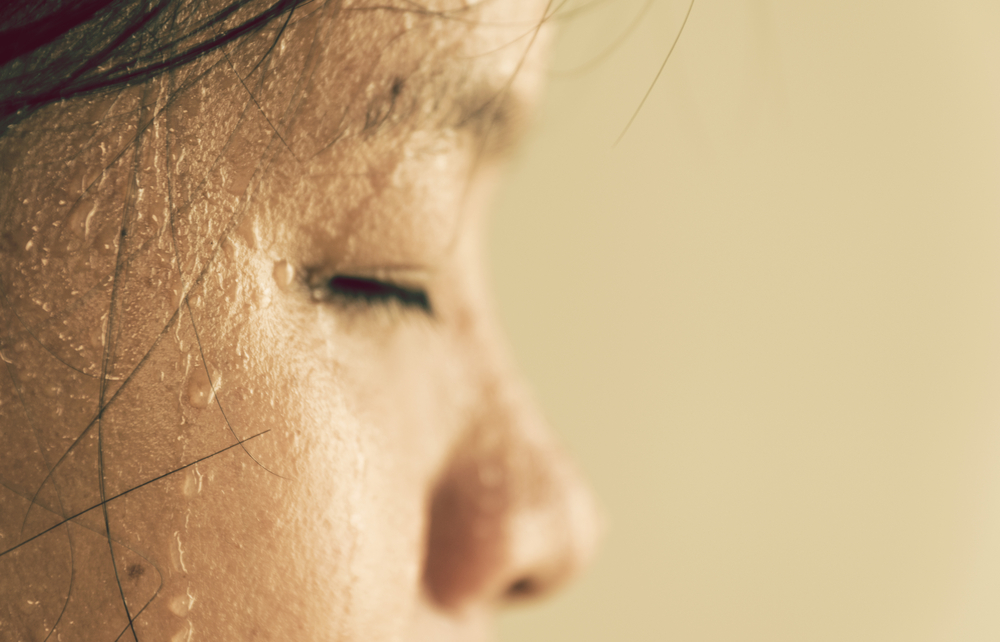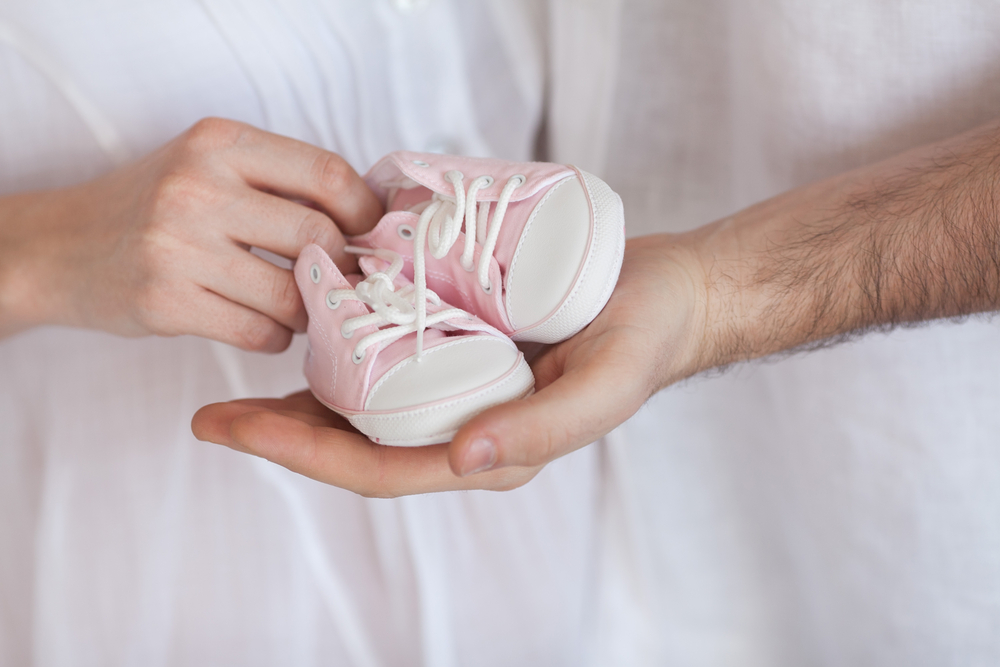Contents:
Medical Video: 5 Mistakes Beginner Backpackers Make
Camping is the most simple and relaxing choice of holiday activities, a golden opportunity to re-establish ties with the family or people closest to you, escape the noise of the city and unite with the splendor of nature, and sleep under the stars.
However, there is always something that makes the moment chaotic. The intention and determination to get a rest and simple happiness quickly became a horror story where people did not stop complaining; heat, cold, hunger - until lost lost or trapped in a trivial accident that ends critically.
Vacationing under the hood doesn't have to end in pain. Most mistakes are beginner negligence, and can be avoided by careful planning. The following are 6 common mistakes that often occur when camping - which you should avoid if you want your camping experience to be unforgettable (without bad memories).
1. Misplaced camping
Tent? Already. Camper friend? Many. Tongsis for photos? Bring. Departing? Wait a minute.
Camping can mean stinging heat or rain, mosquitoes and leeches, poisonous mushrooms and poison ivy. In other words: not all camp areas are created equally. Not many people know that a camping environment has an important contribution to the success of your camping adventure.
Learn deeply about your destination, how the plant ecosystem and animal life (whether or not there are wild animals) before you actually go camping, by browsing the official site of the campsite or in online forums. Official campsites can also provide you with and general information about the regulations and regulations on camp areas, fees, and the life of flora and fauna in them.
The area where you stick the tent pegs is also important to learn from afar. Beginner workers are often trapped in camping areas that are not strategic - without shade, grass, and are another area of traffic. A tent area that has good shade (twigs or large trees), grass, and flat land.
2. Preparatory preparation
Most people think of going straight to 'battlefield' without strategy, without even considering how they will be safe later. The main key to avoiding the risk of negligence is only to rotate in careful preparation and planning long before the H-day, for example: the size of the tent and the readiness of camping equipment.
Unless you intend to backpack, always choose the size of the tent 2-3 times greater than the claim of the tent's capacity compared to the number of people actually sleeping in it. For example, one tent of the size of "three adults" actually only contains 1 adult and his tent equipment (or two adults, squeezed by one another); the size of "two adults" tents only fit one adult and part of his camping equipment.
In campsites that will be your home for a while, trying to "survive" like a reality TV show is not wise. Bring a pillow, if you really can't sleep without a pillow. Potential sleeping equipment will actually make you hate going to sleep and having trouble sleeping soundly. Also check the weather forecast for your camping days and adjust the clothes you will bring. In addition, you certainly don't want to deal with panic when you find a broken tent frame, broken tent zippers, leaky wind mats, or gas stoves that have half an hour left until you reach the camping area - or, worst case scenario, know all this misfortune in the area camp when reinforcements are no longer possible.
Before you camp, test-drive first your tent in the yard. Try flushing with water to make sure the material is still waterproof or there is a leak. Likewise with your other camping equipment, such as sleeping bags or flashlights (don't forget the backup battery), especially if the item is new and untested.
3. Rely on GPS
Bring a compass and a manual map - and the ability to use it - and make GPS an alternative reinforcement (which is actually unreliable in the wild and easily damaged). Don't also easily believe in the myth of the people that moss that grows in the northern part of a tree means that the sun will rise on the east side of the tree, and climb the river to the bottom guarantees civilization. Moss grows in damp places, and the sun can only be seen rising in the east if you are at a certain height.
4. Forgot to bring a first aid kit
Even with all the precautions that have been taken, you will not be immune from abrasions. With all physical activities such as tracking, hiking, and running, someone will definitely get hurt. Make sure you always have a first aid kit with an antibacterial and bandage ointment.
However, it was not necessary to carry dozens of wound plasters and endless bandage rolls. Bring supplies of medicines such as ibuprofen, benadryl, and hydrocortisone creams. All three are multipurpose non-prescription drugs for all situations, such as headaches, muscle pulls, insect bites, to reddish rashes on the skin. Also, if you have a list of personal medicines (such as asthma or diabetes medication), don't forget to take them - including personal health information and prescription medication lists
It is a good idea to read and examine the functions and usage instructions of each drug in your first aid kit to avoid confusion and misunderstanding when using it.
5. Lack of food and fluids
When you are in town, you are encouraged to consume at least 2 liters of liquid per day. When in the middle of nowhere when camping, you will need up to 3 liters of fluid intake every day (depending on hot weather and level of activity).
Clean water sources are difficult to find in the wild. Therefore, be sure to bring iodine tablets or filters, if necessary, to filter water. One thing is certain, don't try to drink your urine or alcohol even if you run out of clean water supply. Urine is a diuretic, and alcohol, can cause you to easily lose body temperature - and your common sense. Two things you need to survive in a harsh environment.
It's easy to underestimate how much food you need if you don't plan it in advance. During camping, you will need a sufficient portion of food (3 meals and 2 snacks). Also take into account the many foods that you have to carry with the number of your camping group, and prepare a portion of 'reserves', to overcome sudden hunger after tiredness of activities all day.
6. Can not make fire
Bring a lighter. Even though you can hunt twigs and garbage to make fire, it is always better not to depend on resources that you are not sure you have.
However, making fires in the camp area also has rules. For example, do not make a fire under the shade of a low tree, do not leave a burning fire without supervision, and turn off the fire before going to bed.
Avoid all the classic mistakes above, and we guarantee your camping experience becomes a pleasant memory. Oh yeah, the most important rule? Never approach a wild animal.
READ ALSO:
- Cold Air Does Not Cause Flu
- What Happens If Eating Fruit Too Much?
- What must be done before and after the flood












